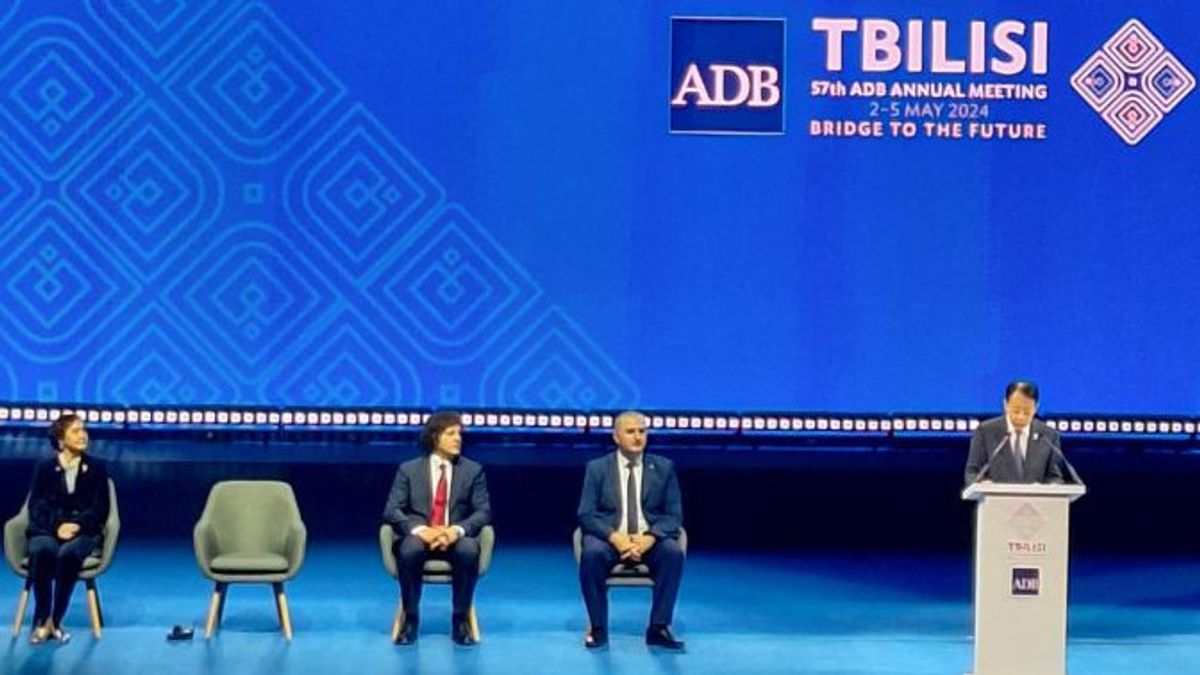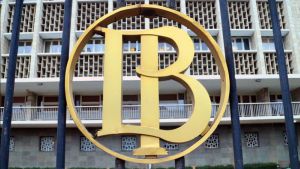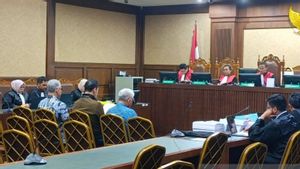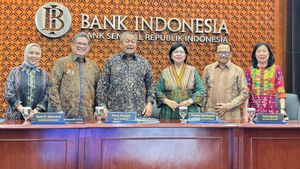JAKARTA - The Asian Development Bank (ADB) encourages its member countries to create environmentally friendly globalization by building a more environmentally friendly and open economy.
"We must also develop this relationship to build an economy that is more environmentally friendly and open," said ADB President Masatsugu Asakawa at the opening ceremony of the ADB 57th Annual Meeting at Concert Hall, Tbilisi, Georgia, quoted from Antara, Saturday, May 4.
ADB President Masatsugu said that global trade and supply chains are currently vulnerable to shocks. However, the answer is not protectionism and segmentation.
According to him, free trade and free capital movement have benefited the region for decades, and this should be a way forward.
"It may be easy to look back at this pandemic, or the current tensions and geopolitical conflicts, and conclude that globalization is dead. I don't believe that," he said.
Therefore, he invites all parties and stakeholders to find ways to deepen regional cooperation to build supply chain resilience, encourage cross-border trade, increase private sector investment, and strengthen financial and tax cooperation.
Masatsugu also invites all member countries and related parties to find ways to decarbonize global supply chains. Trade-related activities account for up to 30 percent of the world's carbon emissions.
"The unpleasant reality is that with strong Asian growth, our contribution to greenhouse gas emissions has also increased," he said.
He emphasized that reducing emissions related to global value chains must be carried out as early as possible and with the involvement of all parties.
"Now is the time to act to reduce emissions related to the global value chain for a more sustainable future," he said.
Meanwhile, Indonesia continues to consistently reduce greenhouse gas emissions, in line with the Nationally Determined Contribution (NDC) commitment in the Paris Agreement.
Minister of Environment and Forestry (LHK) Siti Nurbaya previously said that efforts to reduce Indonesian greenhouse gas (GKR) emissions had yielded results, one of which was by reducing 875.7 million tons of equivalent CO2 (CO2e) based on inventory in 2022.
That number has approached the updated Nationally Determined Contribution (NDC) target of reducing GRK emissions by 31.89 percent with its own capabilities and 43.2 percent with international community support by 2030.
The details are in the energy sector, down 727.33 million tons of CO2e, industrial sector 59.19 million tons of COe, agriculture 90.64 million tons of CO2e, forestry and peat fire 221.37 million tons of CO2 and waste 130.19 million tons of CO2e.
SEE ALSO:
Furthermore, according to the Minister of Energy and Mineral Resources (ESDM) Arifin Tasrif, Indonesia reduces carbon emissions, among others, by reducing the use of fossil fuel sources and increasing the use of energy sources originating from new and renewable energy (EBT).
Another effort made by Indonesia to achieve the target of reducing emissions, added Arifin, was to encourage shifts in the use of electric cars to replace fossil energy-based cars, by offering easy ownership with attractive incentives.
"In the industrial sector, innovations to replace conventional buoyers with electric capillaries and heat pump technology can increase energy efficiency by 75-95 percent and reduce emissions by 20-60 percent. Also intensify CO2 capture and storage technology in hydrogen production for the steel and petrochemical industries," he said.
The English, Chinese, Japanese, Arabic, and French versions are automatically generated by the AI. So there may still be inaccuracies in translating, please always see Indonesian as our main language. (system supported by DigitalSiber.id)
















